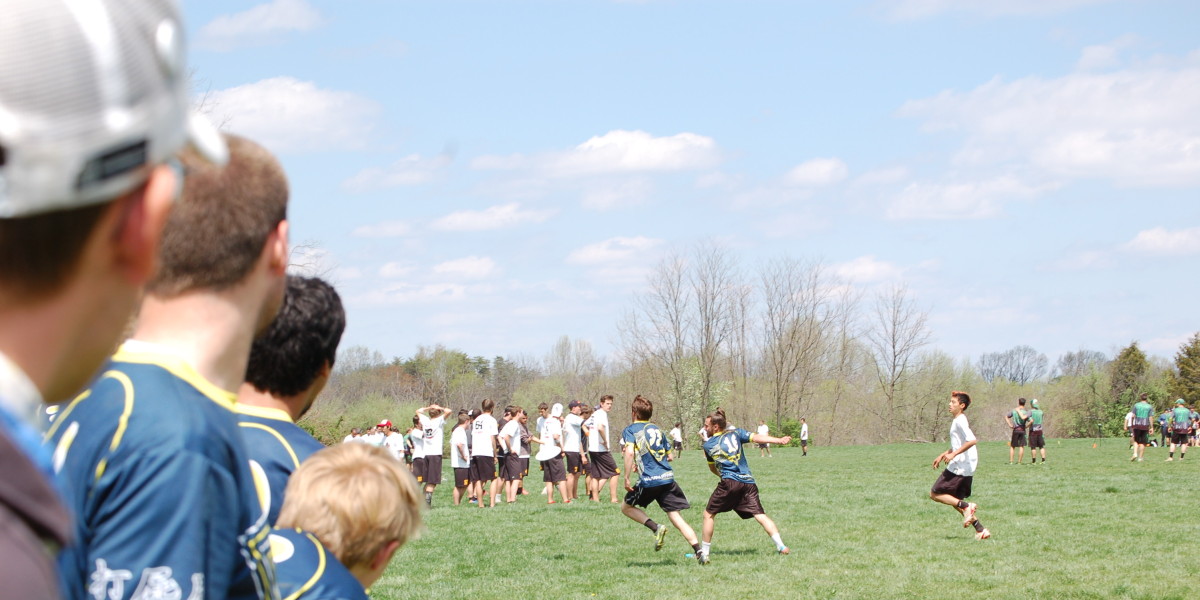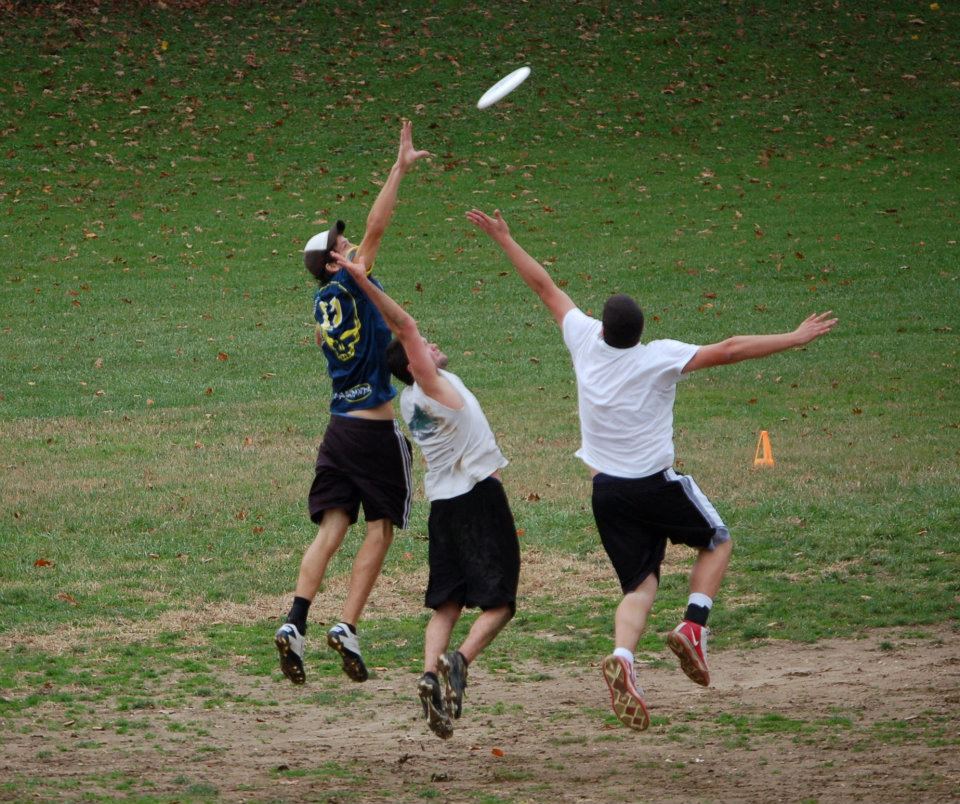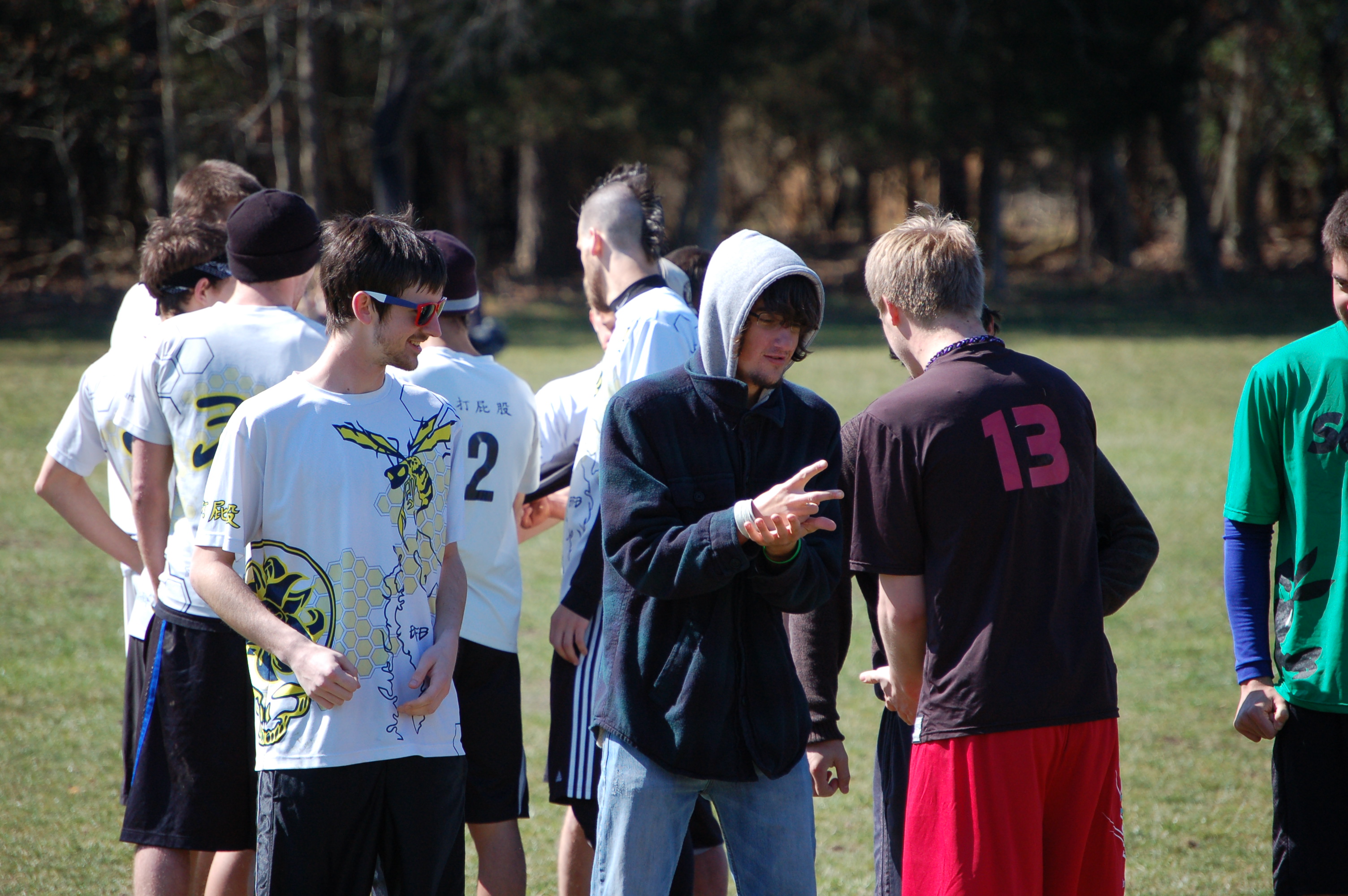
Ultimate is at a critical stage in its development. While the sport has been around long enough to become well established, it is still young enough to have its principles and philosophies experimented with and changed. Some of these philosophies seem esoteric or omnipresent, like the idea of Spirit of the Game, while others are in a constant state of flux. A good example of this would be the idea of running a stack on offense; while the idea of creating space and movement are nothing new, there are an endless number of formations and rules that exist depending on who is running the stack. Over time, these strategies will continually adapt and change to better suit their needs and the stack will continue to evolve. No single version of the stack is strictly better than any other and the same can be said about the philosophies that drive teams and players in ultimate. The goal of this article is to help players question and better understand their own philosophies. I hope that by sharing some of the personal philosophies I have developed over the past decade it will help players discover their own motivations.
Personal Philosophies
 Ultimate means a lot of different things to me: it is my social network, my reason to work out, and my stress reliever, but above all, it is my proudest accomplishment. When I was a freshman in high school, I was diagnosed with a rare form of arthritis in both of my knees, causing them to degenerate aggressively. By the beginning of the summer, I was left with knees like a 60 year-old, legs that were severely atrophied, and doctors who were telling me that it was unlikely I would ever be able to run or jump normally again. Things had never been darker for me, but it was at that time that I first discovered ultimate.
Ultimate means a lot of different things to me: it is my social network, my reason to work out, and my stress reliever, but above all, it is my proudest accomplishment. When I was a freshman in high school, I was diagnosed with a rare form of arthritis in both of my knees, causing them to degenerate aggressively. By the beginning of the summer, I was left with knees like a 60 year-old, legs that were severely atrophied, and doctors who were telling me that it was unlikely I would ever be able to run or jump normally again. Things had never been darker for me, but it was at that time that I first discovered ultimate.
At that time, I was a cargo shorts-wearing, blade-throwing mess on the field, but luckily I was 6’5, so I still got passed to. Playing was painful; I was slow and awful, but it was the most fun I’d ever had, so I stuck with it. Over the course of the next decade I lost 40 lbs, captained my college team at Salisbury University, traveled to Israel with Ultimate Peace, and even played club. This was thanks to the two philosophies that I kept with me that entire time. Lessons so important that I wrote them on my cleats so I would never forget.
On my left cleat it says, “The roots of evil run deep in the fertile soil of fear.” An eloquent way of saying that when you let fear and doubt rule your life, it leaves you vulnerable. Looking back, I shudder to think about what my life could have been if I let the fear of never recovering rule my life. On my other cleat is a family creed in Latin which translates roughly to “Blood of my blood I bleed for you.” This is the purest form of brotherhood. Every time that I bid for a disc and take a toll on my body, it isn’t for personal glory, I do it for my team. And when my legs are cramping and my man has me beat by a few steps, it is this philosophy that keeps me chasing him.
Everyone finds motivation from different places and as a player it is important to learn where to draw one’s strength. For me it is a sense of never giving in, but for others it might be a quest to succeed, improve or simply just to become part of something larger than one’s self. By learning your personal motivations you become a stronger player, by sharing them you become a stronger teammate, and by living them you become a stronger leader.
Team Philosophies
Beyond our personal motivations and philosophies, there are those that exist within every team. Some teams may be geared towards success, while others might be focused on having fun. While both philosophies have their merit, it is easy to see how your personal philosophies might not mesh with one of these. When choosing a team it is important to ensure that your philosophies and those of your chosen team are compatible. If not, it is likely that the chemistry a team needs to succeed will never develop. Below is my philosophy to having a successful team. I want to emphasize that this is only a personal guideline, and I encourage players to formulate their own philosophies and discover what is important to them.
10v7
My principle is called 10v7 and it acts as a guideline to being the best teammate and player that you can be. The principle of 10v7 simply states that besides the seven on the line, there are three other “players” that a team can take advantage of.
The 8th Player – The Sideline
As every player has probably heard their captain say at some point in time, sidelines win games. While this idea is not particularly groundbreaking, it is one that bears some unpacking. For most players being an effective sideline means yelling “up” or “no break”, but the sideline is much more than that. Beyond the strategic value of having extra eyes and ears on the field, a sideline is responsible for the morale of the players. It’s frustrating to watch a player not run through a disc and get D’d, but it is infuriating to watch that same player mope rather than chase their mark, who is now in a full sprint towards the end zone. It is the sideline’s job to tell that person to shake it off and get them back on defense, helping turn that player’s frustration into motivation.
Sidelines also help keep the players on the field fresh. Hearing your friends cheering your name is a far better motivator to get a Callahan than having them silently sitting on the line waiting for their turn to play. Psychologically, the biggest boost on the field comes from those players off the field. A sideline also helps keep physical energy high by rushing on during a timeout and passing around water or keeping hungry players well fed.
The team that learns to harness this energy will undoubtedly run harder, play longer and generate more points than a team with an uninvolved sideline. If you want your team to win more games don’t sit out after a long point, get on the sideline, cheer on your players and keep the energy high.
The 9th Player – The Environment
An old captain of mine used to say that running a cup in the wind is like cheating, because the wind will always get the D. This idea of using the environment to your advantage stretches much further than simply running zone on a windy day. Harnessing the power of your environment is something that the best players do instinctually, but for everyone else it requires some learning. Wind happens. Some days you are going to have to play ultimate in heavy wind, and when that happens, your perfectly honed 70 yard IO flick means nothing. This being said, the best players and teams do not stay inside on a windy day, they get out and play. They master the wind in practice and so they can use the wind in games.
Becoming masters of the environment means more than learning how to handle in the wind, it means adapting more efficiently than the other team. As a handler, if the OI backhand is open it means learning not to throw it if it will cause your cutter to have to read it against the sun. As a cutter, it means planting your foot on the only tuft of grass on a field that is otherwise all mud so that you can cut while your defender is slipping. It means preparation before the game and adaptability during. Teams succeed when they use their environment to their advantage and fail when they fight it.
The 10th Player – Spirit of the Game
To begin, Spirit of the Game is, in my opinion, the most ethereal and important quality of ultimate. While its application and importance might be contested, it is what separates ultimate from other sports. To me, Spirit boils down to one word: respect. To have good spirit you must respect the game, respect your opponent, and respect yourself. To become a paragon of ultimate these are ideals that in my opinion every player should strive for.
 Firstly this means respecting the game that you are playing, recognize that different games will have different atmospheres. The level of play at Nationals will be different than at a hat tournament. I am all for playing to one’s full potential, but the guy who is laying out over a girl every point at pickup is not respecting the game. Intensity isn’t an on and off switch, it’s a dimmer switch and players should adjust themselves to match the games they are in.
Firstly this means respecting the game that you are playing, recognize that different games will have different atmospheres. The level of play at Nationals will be different than at a hat tournament. I am all for playing to one’s full potential, but the guy who is laying out over a girl every point at pickup is not respecting the game. Intensity isn’t an on and off switch, it’s a dimmer switch and players should adjust themselves to match the games they are in.
Respecting your opponents is one of the hardest things to do. When a game gets heated, it is easy to forget that you are playing against a human being and that you are playing a game. Some of the best players in ultimate play at an incredibly high level while always respecting their opponent. They congratulate and respect excellent plays and help out injured players regardless of their team.
Finally, Spirit of the Game means respecting yourself. Hold yourself to your personal and team philosophies and don’t compromise. You should never feel ashamed at failure if you gave it your all; because failure is an opportunity to improve. Failure happens to everyone, but the players who respect their limitations and learn from them are the players who grow and succeed.
These qualities are all aimed at the same goal, which is getting others to respect you. The elusive 10th player shows up to play for your team when you reach the pinnacle of respect. If you respect the game that you are playing, then your teammates are going to respect you and your team will function better because of it. If you respect your opponent, then they will respect you, and you will no longer argue contested fouls with an enemy. Instead you will be talking to a fellow player rationally. The respect that you show yourself by doing things like calling yourself out even though you made a great catch will show your integrity and get everyone on your side. There is no greater feeling in the world than having your team, the spectators and even the opposing team cheer for you after a good play and this only comes when you earn their respect.
Final Thoughts
By harnessing the power of these three other players, weaker teams can upset stronger ones and it can often be the difference in an otherwise close game. Striving to play with a “three man” advantage and never giving in are the philosophies that drive me as a player and teammate, but as I have said before these are only my thoughts and experiences. I am not a top level player but rather a person who has enjoyed the privilege of playing with all levels of players from around the world and seeing these things for myself. My philosophy of 10v7 is a lesson that I try to impart on all players I meet because beyond its competitive advantage I think it also holds the key to living up to your own potential as an ultimate player. It is not my intention to explain how the game should be played, or how you should feel about it. Rather it is my hope to start a dialogue in the ultimate community that will help shape its future. So I ask you, what motivates you as a player? What philosophy governs your team? Are there philosophies that are too antiquated for modern ultimate, can they be adapted or should they be thrown away? We are living in the golden age of ultimate, how will your philosophy impact it?








Comments Policy: At Skyd, we value all legitimate contributions to the discussion of ultimate. However, please ensure your input is respectful. Hateful, slanderous, or disrespectful comments will be deleted. For grammatical, factual, and typographic errors, instead of leaving a comment, please e-mail our editors directly at editors [at] skydmagazine.com.